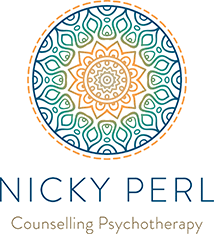Adults
Individuals:
It is not easy to make the decision to come to therapy and recognising that you need help is an important first step.
You could be struggling to cope with a moment in time or have deeper concerns about feeling stuck and limited by the repetition of familiar patterns and behaviours. You may not even know what it is that is troubling you but feel that you are not getting the most out of life.
The therapeutic relationship is critically important and I work in a way that pays attention to this, using what happens between us to inform our understanding about how you interact with the world outside the therapy room. I believe that therapy is a collaborative partnership and that a steady, warm and containing presence will facilitate your growth and will help you to optimise strengths that you already have.
Couples:
I’m encouraged by the growing shift in how couples’ therapy is perceived—moving away from the notion of a last resort for troubled relationships, and toward a more proactive, constructive approach. Increasingly, couples seek therapy not only to resolve conflict, but to understand repetitive patterns, address feelings of being stuck, and deepen emotional connection.
I hold a strong belief that relational difficulties are co-created, shaped by both partners' experiences and histories. We often bring unconscious patterns and past ways of relating into our intimate relationships, which can affect communication and emotional closeness.
My approach is integrative, exploring how early attachment experiences shape our expectations and behaviours in adult relationships. At the same time, I work dynamically in the present, focusing on the ‘here and now’ of the relationship. I also offer practical strategies to help couples improve intimacy, communication, and emotional connection—working not only to understand the roots of difficulties, but to build more satisfying and resilient relationships.
Supervision:
I have completed a UKCP-accredited supervision training and offer supervision in both individual and group settings. My approach is supportive, reflective, and collaborative, with an emphasis on fostering creativity and professional growth. I currently supervise trainees and practitioners in my consulting room in NW11 and also work as a group supervisor at the Minster Centre.
I work with:
Depression and anxiety • loss and bereavement • personal development and change • relationship issues • self-harm • spirituality • stress • trauma • addiction • physical disabilities and chronic pain • childhood neglect • bullying • anger management • miscarriage • post-natal depression • insomnia and nightmares • issues around gender or sexuality • loneliness and isolation • cultural issues • career and workplace difficulties
Children and young people
The old adage “You’re only ever as happy as your unhappiest child’ sounds trite until you are faced with problems in your own family.
Children and young people frequently experience emotional difficulties which impact on their overall well being and confidence. These issues can manifest themselves in broader problems including withdrawal, physical ailments, failing to thrive at school (socially and / or academically) and a general feeling of things just not being right.
Therapy can help children and adolescents to navigate these challenges in a supportive and empathetic environment. Whilst the articulation of deeply held feelings is important, offering practical tools can provide the child or young person with the foundations of good mental health for life and can help them to feel happier, more in control and more confident overall.
Good therapy can only go so far and involving parents in the process is a key part of success; not just because parents exert more influence on children than teachers and counselors, but because parents need to be part of the team, learning how to support their child during the counseling process.
Whilst I am happy to work with all issues, I have a particular interest in the following areas:
· Anxiety
· Depression
· Bereavement
· Friendship issues
· Low self esteem and confidence
· Family breakdown
· Behavioural problems
· Trauma


